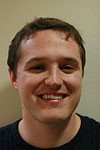A confident classical liberal or conservative student would have delighted in the opportunity presented by graduate student Sung Ohm’s sections of English 101, to learn composition and argumentation by engaging and perhaps demolishing the best of the socialist left, from Marx to Howard Zinn.
David Horowitz, author of “”Abusive Academics: The University of Arizona,”” sees things differently. Whereas Ohm’s syllabus emphasizes dialectical reading, critical thinking and development of the writer’s craft, for Horowitz the course is designed “”to equip students with a proficiency in anti-capitalist and anti-American rhetoric.””
If Ohm was actually assigning grades based on students’ ability to repeat leftist arguments, it’s almost certain that the English department would have given him the treatment he deserved: To be tarred, feathered, and carried out of academia on a rail.
More certain, however, is that Horowitz does not offer and likely has no evidence that instructors in this or any of the other twelve courses featured in his recent hit piece discouraged critical thought, punished dissent or assigned grades according to ideological compliance.
Maybe that isn’t the point. Horowitz’s report reads like a laundry list of shockers intended to rile up conservative taxpayers. There’s enough insinuation about indoctrination, sometimes bordering on libel, to get people thinking that the state is using their money to subsidize the leftist political and cultural program, and to induce them to ask their representatives in the Legislature to rein in academics.
All that lip service given to academic freedom and intellectual integrity seems a cover, given that Horowitz’s tactics could provoke legislative interference in the curriculum.
Even supposing this is only a blunder and Horowitz’s concerns are bona fide, he shows himself to have much to learn about the academy before he can offer poignant criticism.
A professor who doesn’t have strong opinions about his field of study isn’t likely to be qualified for the job. That academics express opinions in the classroom shouldn’t be of concern; it’s expected that a college student will have ceased being a mere pupil, taking what the teacher says to be beyond question or criticism, long before matriculation. This isn’t a kindergarten.
Calls for a sort of equal-time doctrine are unrealistic. Advanced courses, which make up the bulk of Horowitz’s list, are intended to explore particular points of view; there’s simply not enough time to give all opposing perspectives their due!
A course on Plato can’t also be one on Aristotle. Nor is it unreasonable for courses to have basic, unquestioned premises.
A Marxist student hanging on to the labor theory of value will fail microeconomics as surely and as rightly as a student who cannot even for the sake of argument accept the existence of a “”gender hierarchy”” will fail Horowitz bogeywoman V. Spike Peterson’s Gender and Politics course. The appropriate time to question foundations is not the same as the time to study implications.
Many are the questions that could be offered by an astute critic of higher education. The question of whether or not higher education should be subsidized aside, why do taxpayers fund an institution instead of provide vouchers to students? Why are classical liberal or libertarian professors rare outside of economics and philosophy departments?
Do approaches to criticism like deconstruction or feminism have intellectual merit, or are they the proverbial hammers that make all problems look like nails? Should “”studies”” departments like Women’s or Latin American Studies exist? Are they refuges for ideologues who can’t meet the standards of mainstream history, sociology or literary criticism?
Why is the idea of a liberal education downplayed at the UA? Students can hit the bars on weekday nights and still pass classes; is that a sign of trouble? Is enough expected of students in arts and letters? Is too much expected of students in science and engineering? Are the pedagogical techniques being employed actually working? Are hundred-person lectures worth anything at all?
But Horowitz hasn’t reached that level yet. He’s stuck on remedial Academia 99 coursework, and until he passes it, he’ll be little more than a gadfly, with his more cogent points obscured by fallacies, na’vetǸ and blatant misconceptions.
Ben Kalafut is a physics doctoral student. He can be reached at letters@wildcat.arizona.edu









